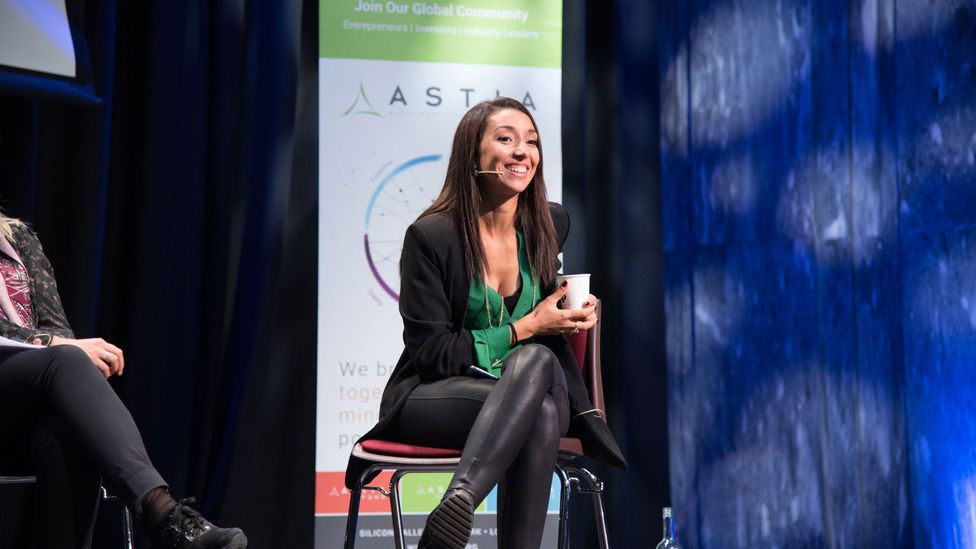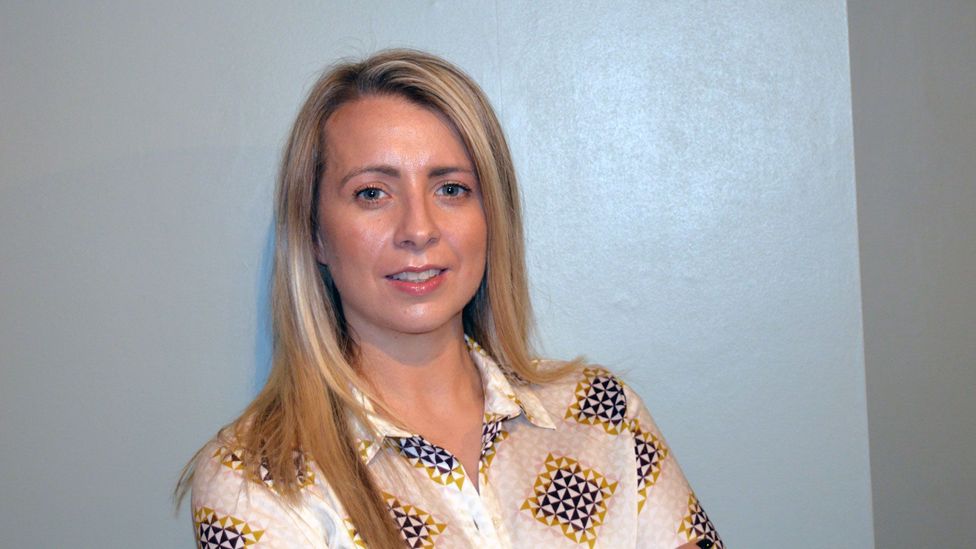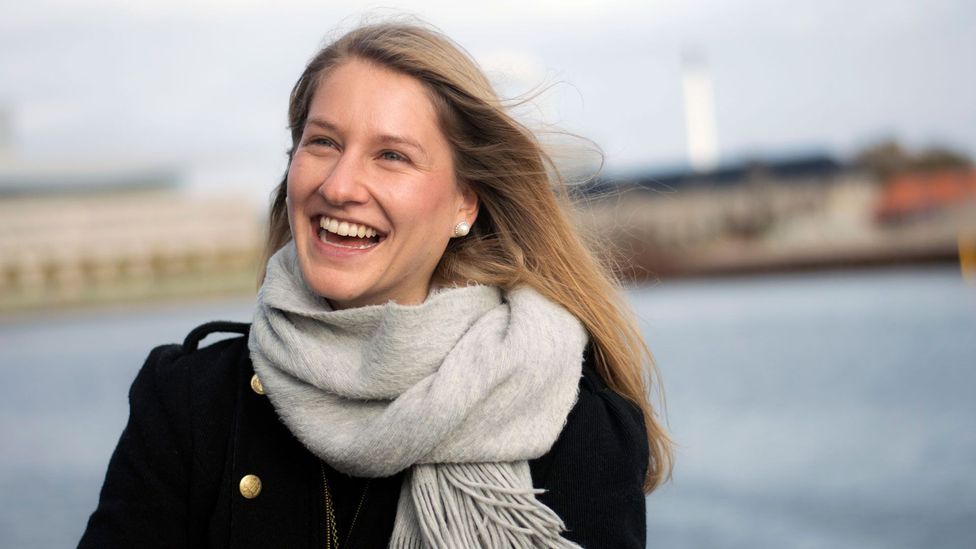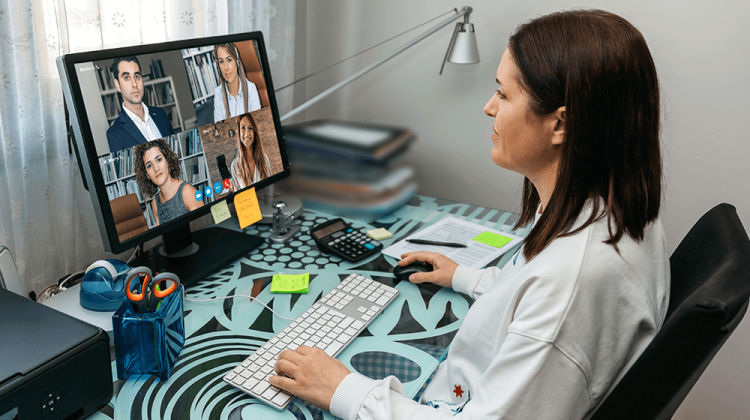Remote working and watching the world go through a major shake-up is redefining what many of us need and want from our careers – and even our lives.
As the travel and aerospace industries began crumbling at the start of the pandemic, Miranda Livingston was grateful to have clung on to her job at a transportation company in Northern Ireland. But just months later, the 34-year-old put herself forward for redundancy and began signing up with recruitment agencies. “I’d had a wake-up call that I needed a change,” she says. “I’d just kind of stayed there because that’s where I was, and I was well paid... it wasn't horrific, but it wasn't anything that I loved.”
It’s no secret that Covid-19 has cost millions of people their jobs and livelihoods. But the pandemic is also having an impact on a growing number of people like Livingston, who had the fortune of keeping their positions. Despite the privilege of relative job security, many young professionals across countries and industries are deciding to change companies, switch sectors, retrain or even set up their own businesses.
Survey findings suggest that in the UK finance industry, more than four in 10 currently employed workers are thinking about moving jobs. Research from Sweden indicates seven in 10 IT specialists would consider new opportunities. A wider US poll of jobseekers – both workers looking for new roles and people who were already unemployed – showed six in 10 were open to changing careers completely during the pandemic.
During a time of such economic uncertainty, why are so many skilled professionals open to fresh experiences? The answers could tell us a lot about how our career needs are shifting as a result of Covid-19, and how to be happy at work in the future.
Richard Alderson, founder of global career-change specialists Careershifters, says “a shock to the system often causes people to reassess things in their lives”. Before the pandemic, some of his clients were people going through major life events such as a bereavement, break-up or an age-related milestone. Now, the “jolt of the pandemic” has caused many more of us to ask fundamental questions about our life choices and whether or not these align with our core values.
Story continues below

Raja Skogland says the pandemic made her re-evaluate where she was directing her energy (Credit: Raja Skogland)
That was the case for Raja Skogland, 35, a Swiss-Moroccan living in Oslo, who was appointed as CEO of a major Nordic start-up accelerator programme, just as the pandemic hit. The position was one she’d been longing for, but going into lockdown made her realise “life is so short and precious”, and led her to question how she was spending her days.
“I was coaching and advising entrepreneurs from all around the world. It was taking me a lot of time and exhausting me,” she explains. “There was so much insecurity around everything in our lives. I felt I had to make some drastic changes to feel better.” After deciding she wanted to put her energy into a single project that she felt passionate about, and to free up additional hours to spend with loved ones, she’s now launching an artificial intelligence start-up.
There was so much insecurity around everything in our lives. I felt I had to make some drastic changes to feel better – Raja Skogland
Mo Gawdat, author and presenter of the Slo Mo podcast on job and life satisfaction, says he’s seen plenty of anecdotal evidence that “a lot of people are leaving the rat race” after reassessing their life goals during lockdown. Gawdat, who quit his own job as Chief Business Officer for Google X in 2018 after his son passed away, believes the death toll from Covid-19 has provided “a continual reminder that we aren't immortal”.
The shift to working from home has also played a part, stripping away some of the things that boosted job satisfaction. Livingston in Belfast found she missed the energising impact of face-to-face networking and business meetings, and was left with “calls about calls, and emails back and forth”. “Working from home, it really revealed the bare bones of my job,” she says. She also reflected that she’d been given little access to training and development courses or tools, and admitted to herself that she’d ended up in an industry she had no real passion for.
Helen Tupper, co-author of The Squiggly Career guide, says even people who thought they had “dream jobs” before Covid-19 are reflecting on what these amount to now that they’re working from their kitchens or bedrooms. While we may be attracted by the perks of a job like travel or a designer office, these can be distractions masking “the more significant meaning we get from our work”, she says. Build in the fact that we’re socialising less and engaging in fewer leisure activities, how we spend eight of our waking hours has become all the more significant.
“The risk is that just 'doing' the work dominates our days,” she says. “Instead, we need to think about what work gives you energy and what work takes it away. When are you at your best and what action can you take to feel more like that more often? These are the sort of reflective questions that can give people back a sense of clarity and control."

Miranda Livingston put herself forward for redundancy at her company after she had a "wake-up call" that she wasn't doing something she loved (Credit: Miranda Livingston)
The trend towards more purpose-driven jobs and companies was well underway before Covid, with millennials in particular known for prioritising purpose over pay checks. But this trend has accelerated since the crisis began, with research suggesting people are seeking out training to go in a new direction.
Gawdat says that, in some cases, the pandemic has “led people to feel gratitude if they are in a role that does bring purpose and joy. For those who aren’t, I think it’s been the much-needed shake-up to pursue a more purposeful career".
Luzia Buchman, 28, recently left her role handling events and sustainability strategies for an electric surfboard company in Malmö, Sweden, and moved to a newly launched consultancy firm where sustainability is her sole focus.
“I was travelling to very beautiful places by the coast, I went to big yacht shows… it was quite a dreamy environment,” she says of her former job. “But corona was such a confirmation to me that I want purpose in my work. I need to have the feeling that I can add shared societal value and not just support the growth of one single company.” Moving from a 50-person company to a tiny consultancy was “really a gamble”, she admits, “yet it was so much more important than staying in a semi-secure role where I can't really accomplish the things that I want to accomplish”.
Corona was such a confirmation to me that I want purpose in my work – Luzia Buchman
But Careershifters’ Alderson says not everyone needs to switch to a company that saves lives or the environment to find their work more meaningful. “People can be fulfilled in all kinds of different fields,” he says. “It's really about, how do you feel about your work? To what degree do you feel energised? To what degree do you come to the end of the day and feel a sense of pride or satisfaction about what you’ve done?”
Recent research by global consulting firm McKinsey showed that this kind of individual purpose is among the core factors “having a disproportionate impact on employee well-being and work effectiveness” during the pandemic. Those who felt they were achieving their goals at work and fulfilling their own personal purpose both performed and felt better.
Alderson also says it’s important to recognise that even if they want to, not everyone will be able to prioritise work they find meaningful. After watching entire industries collapse during the pandemic, the more risk-averse may still choose – or be obliged – to prioritise financial security and stability over other variables that boost job satisfaction.
“Many are just having to do whatever they can in what is a difficult climate,” says Alderson. “For them, all sense of, ‘is this something that can bring me fulfilment?’ is out the window, temporarily at least”. His best advice to anyone in this group is accepting the fact that “this is going to be an uncomfortable period”, while also recognising that it won’t last forever. “If you have the energy and time to be curious about other fields and to develop your skills in ways that you think will help you after this period, then great. But if not, just hang in there.”

Luzia Buchman says she wants to feel like she's contributing to society (Credit: Luzia Buchman)
Tupper adds that many of us will need to adapt our salary expectations in the coming years, as the effects of Covid-19 continue to ripple through the global economy. “If people define their career success as pay and promotion, the next 12 months are going to feel very hard,” she says.
However, Tupper hopes the shift to home working and re-evaluating the meaning of work amid Covid-19 can help job-seekers and workers find success in more and different places. For example, some workers may find value in jobs that provide greater flexibility for childcare, or may be happy with employers who provide increased online learning to help improve digital skills or personal development.
“There's so much more that you can get when you start looking at the full amount of value you get from your employer, rather than just pay and promotions as an output,” argues Tupper. “Be curious about what is available and feel confident enough to ask for it."
In Belfast, Livingston recently accepted a job as project manager for the public-health service, on a similar salary to her previous role in the transportation industry. She was actively looking for roles in the non-profit sector as a route to greater fulfilment, but believes factors such as working for a smaller team, regular group video calls and a commitment to continuous development will also be crucial to improving the remote working experience this time around.
“I guess at this point it's just a feeling,” she says, “but it's something that I'm definitely hopeful for.”





